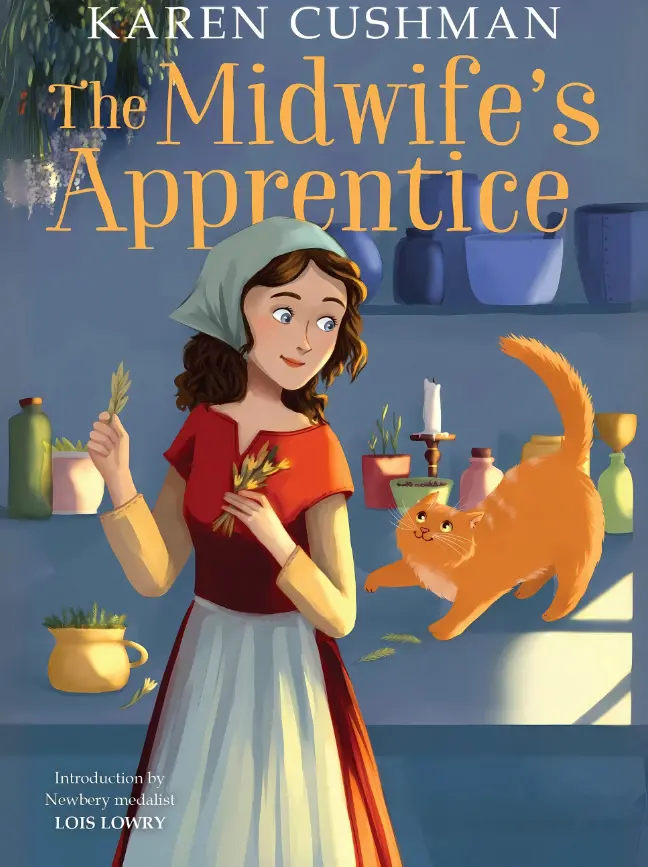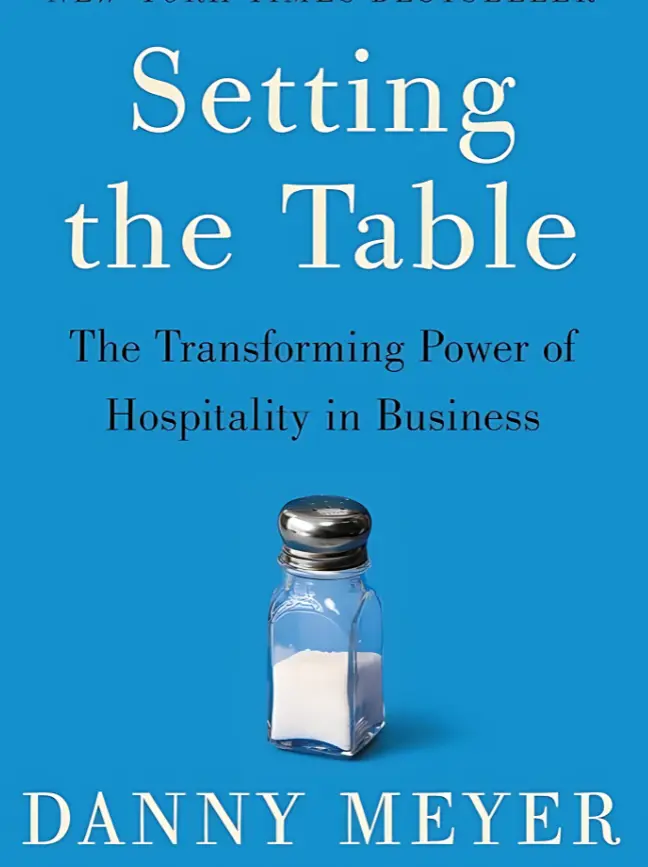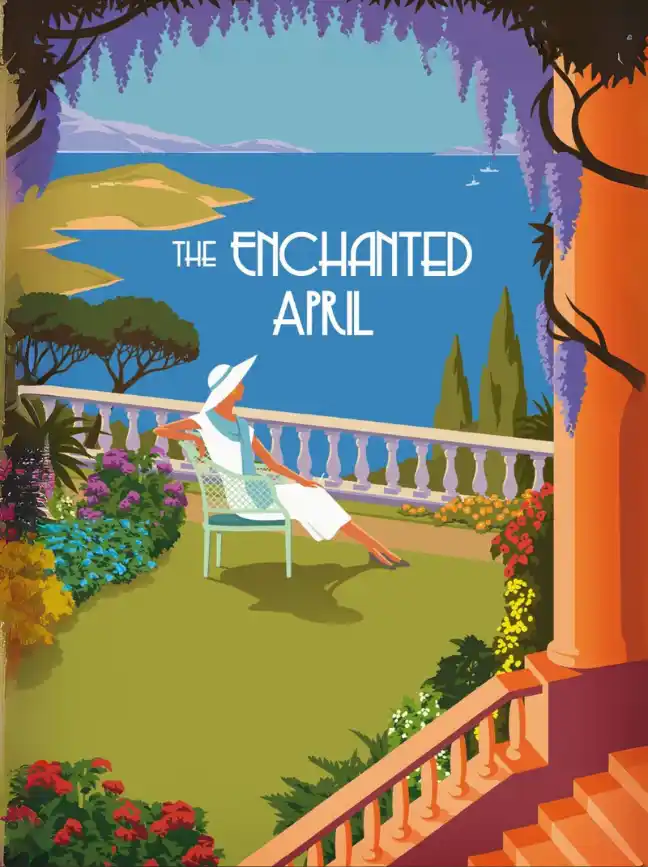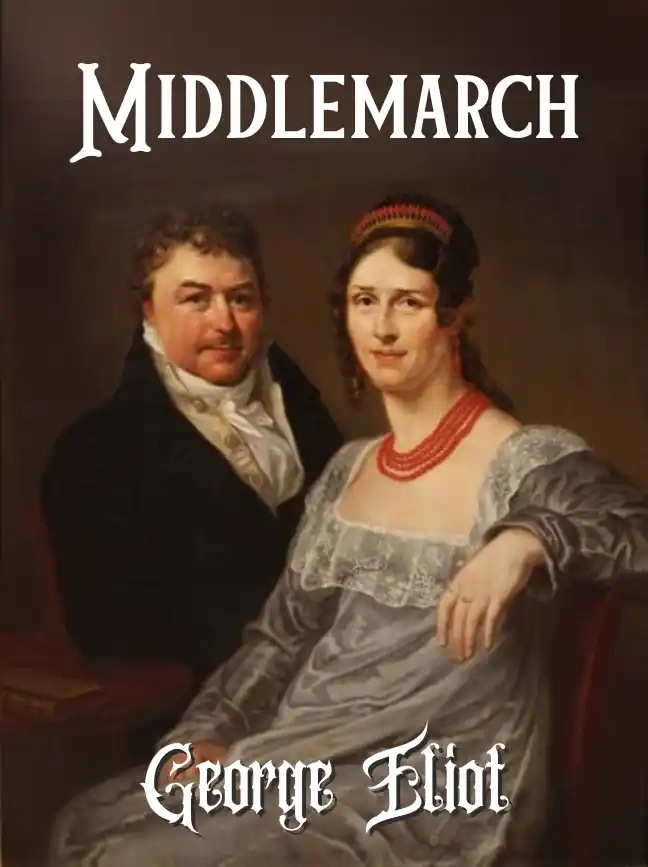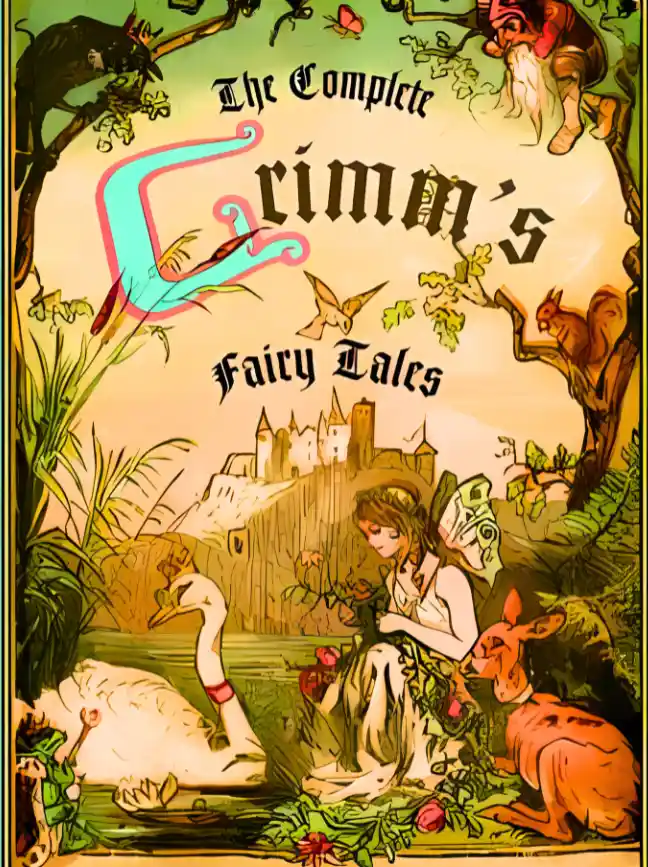I
n a sense all dreams foretell events, but some more clearly than others.
Noemí circled the word dreams with her pencil. She enjoyed writing in the margins of her books; she loved reading these anthropological texts, sinking into the lush paragraphs and the forest of footnotes. But not now. Now she couldn’t concentrate. She rested her chin on the back of her hand and placed the pencil in her mouth.
She had spent hours in waiting, trying to find things to do, books to read, perfecting tricks to distract herself. She checked her watch and sighed. It was close to five o’clock.
She had attempted to speak to Catalina early in the morning, but Florence had told Noemí that her cousin was resting. Around noon Noemí had tried again. She had been dismissed a second time, and Florence had made it clear there would be no visits with the patient until nighttime.
Noemí must not push and pry and attempt to wedge her way into that room, as much as she wanted to. She simply couldn’t. They’d toss her out if she did, and besides, Virgil was correct. She’d done wrong and felt ashamed.
How she wished there were a radio around the house. She needed music, conversation. She thought of the parties she attended with her friends, leaning against a piano with a cocktail in her hand. Also her classes at the university and the lively discussions at the cafés downtown. What she now had was a silent house and a heart riddled with anxiety.
…and dreams about ghosts, not recorded in this book, inform people about happenings among the dead.
She took the pencil out of her mouth and put the book aside. Reading about the Azande did her no good. It offered no distraction. She kept remembering her cousin’s face, her contorted limbs, the hideous episode of the previous day.
Noemí grabbed a sweater—the one Francis had given her—and stepped outside. She thought to smoke a cigarette, but once she stood in the shadow of the house she decided she needed a bit more distance from it. It lingered too close; it was hostile and cold and she did not wish to parade before its windows, which felt, to her, like lidless, eager eyes. She followed the path that snaked behind the house and led up to the cemetery.
Two, three, four steps, it seemed it didn’t take her long until she stood before the iron gates and walked inside. She’d been utterly lost in the mist before, but she did not bother to consider what she’d do if she should lose her way again.
In fact, a part of her very dearly wished to be lost.
Catalina. She’d hurt Catalina, and even now she did not know how her cousin was faring. Florence was tight-lipped; she’d seen nothing of Virgil. Not that she wished to see him very much.
He’d been beastly.
You almost made me a widower tonight, Noemí.
She hadn’t meant it. But, intent or not, what did it matter? What mattered were the facts. That’s what her father would tell her, and now Noemí felt doubly ashamed. She’d been sent to fix a problem, not to make an even bigger mess. Was Catalina angry with her? What might Noemí say when they finally saw each other? Sorry, dear cousin, I almost poisoned you, but you’re looking better.
Noemí walked among tombstones and moss and wildflowers, her chin lowered, tucked close against the folds of the sweater. She saw the mausoleum and in front of it the stone statue of Agnes. Noemí peered up at the statue’s face and her hands, which were weathered with speckles of black fungus.
She had wondered if there was a plaque or marker with the name of the deceased on it, and she saw that there was. Noemí had
overlooked it during her previous visit, although she could hardly be blamed for missing it. The plaque was hidden by an overgrown clump of weeds. She plucked the weeds away and brushed the dirt off the bronze plaque.
Agnes Doyle. Mother. 1885. That was all Howard Doyle had chosen to leave behind to commemorate the passing of his first wife. He had said he had not known Agnes well, that she’d died within a year of their marriage, yet it seemed odd to have a statue carved of her and then not even compose a proper line or two about her passing.
It was the nature of the one word etched beneath the woman’s name that bothered her too. Mother. But as far as Noemí knew, Howard Doyle’s children were born of his second marriage. Why choose “mother” as the epithet, then? Perhaps she was making too much of this. Inside the mausoleum, where the woman’s body rested, there might be a proper plaque and a proper message about the deceased. Yet it was unsettling in a way she could not define, like noticing a crooked seam or a tiny stain on a pristine tablecloth.
She sat there, at the statue’s feet, and tugged at a blade of grass wondering if someone ever bothered setting flowers inside the mausoleum or at any of the graves. Could the families of everyone buried in the cemetery be gone from the area? But then, most of the English folk must have come alone, and therefore there had been no kin to bother with such things. There were also unmarked graves for the local workers and with no gravestone to their name, there could be no crowns of flowers for them.
If Catalina dies, she thought, she’ll be buried here, and her tomb will be bare.
What a horrid thought. But she was horrid, wasn’t she? Simply horrid. Noemí dropped the blade of grass and took a deep breath. The silence in the cemetery was absolute. No birds sang in the trees, no insects flapped their wings. Everything was muffled. It was like sitting at the bottom of a deep well, shielded by the earth and stone, from the world.
The merciless silence was broken by the sound of boots upon grass and the crunching of a twig. She turned her head and there was Francis, hands deep in his thick corduroy jacket’s pockets. He looked, as he often did, quite fragile, the faint sketch of a man. Only in a place such as this, in a cemetery with drooping willows and mist licking at the stones, could he acquire any substance. In the city, she thought, he’d be shattered by the banging of the Klaxon and the rumbling of motors. Fine china, tossed against a wall. But she liked the look of him in that old jacket, frail or not, his shoulders hunched a little.
“I thought you’d be here.”
“Hunting for mushrooms again?” Noemí asked, setting her hands on her lap and steadying her voice so that it was not strained. She’d nearly wept in front of them last night. She did not wish to do it now.
“I saw you leaving the house,” he confessed. “Did you need anything?”
“My old sweater; you are wearing it,” he said.
It wasn’t quite the answer she was expecting. She frowned. “You want it back?”
“Not at all.”
She hiked up the too-long sleeves and shrugged. Any other day she would have taken this as a cue to engage in charming banter. She would have teased him and enjoyed watching him grow flustered. Now she picked at blades of grass.
He sat down next to her. “It really isn’t your fault.”
“You’d be the only person who thinks that. Your mother won’t even tell me if Catalina is awake, and Virgil wants to throttle me. I wouldn’t be surprised if your uncle Howard wished to do the same.”
“Catalina woke up for a bit, but then went back to sleep. She had a little broth. She’ll be fine.”
“Yes, I’m sure,” Noemí muttered.
“When I say it’s not your fault I truly mean it,” he assured her, his hand falling upon her shoulder. “Please, look at me. It isn’t. It’s not
the first time. This happened before.” “What do you mean?”
They stared at each other. It was his turn to pick a blade of grass and spin it between his fingers.
“Well, come on. What do you mean?” she repeated, snatching the piece of grass away.
“She’d taken that tincture…she’d had a reaction to it before.”
“Are you telling me she’s made herself ill, the same way? Or else that she’s tried to kill herself? We are Catholic. It’s a sin. She wouldn’t, never ever.”
“I don’t think she wants to die. I mention it because you seem to think you did this to her, and you didn’t. It’s not your presence that has made her ill; it’s not you at all. She’s miserable here. You should take her away immediately.”
“Virgil wouldn’t let me do that before and he certainly won’t let me do it now,” Noemí said. “She’s under lock and key, at any rate, isn’t she? As if I could even see her for a minute right now. Your mother is furious at me—”
“Then you should leave,” he said brusquely. “I can’t leave!”
First she considered the immense disappointment she’d cause her father. He’d sent her as an ambassador, to squelch scandal and provide answers, and she would return home empty-handed. Their deal would be void—no master’s degree for her, ever—and worse than that, she hated the taste of failure.
Besides, she didn’t dare to go anywhere with Catalina in this state. What if she should need her? How could she hurt Catalina and then run off? How could she leave her all alone, racked in pain?
“She’s my family,” Noemí said. “You must stand by your family.” “Even if you can’t possibly help her?”
“You don’t know that.”
“This is no place for you,” he assured her.
“Have they asked you to chase me away?” she asked, standing up quickly, irritated by his sudden vehemence. “Are you trying to get rid of me? Do you dislike me so much?”
“I like you very much and you know it,” he said, his hands sliding into his jacket’s pockets again as he looked down.
“Then you’ll help me and take me into town now, won’t you?” “Why do you need to go into town?”
“I want to find out what was in the tincture Catalina drank.” “It won’t do you any good.”
“Even if it doesn’t, I want to go. Will you take me?” “Not today.”
“Tomorrow, then.”
“The day after tomorrow, perhaps. Perhaps not.”
“Why not make it in a month,” she replied angrily. “I can walk into town without you if you have no desire to help me.”
She meant to stomp away and succeeded only in stumbling. Francis offered her his arm to steady herself, and he let out a sigh when her fingers caught his sleeve.
“I have every desire to help you. I’m tired. We all are. Uncle Howard has been keeping us awake at nights,” he said, shaking his head.
His cheeks seemed more hollowed out and the dark circles under his eyes were almost purplish. Again she felt selfish and awful. She thought of no one but herself and did not pause to imagine that other people at High Place had problems of their own. For example, who knew if at nights Francis was called to tend upon his sickly uncle. She could picture Florence, directing her son to hold up an oil lamp as she pressed cold compresses against the old man’s face. Or perhaps other tasks were handed to the young men. Virgil and Francis, undressing the frail, bleached body of Howard Doyle, applying ointments and medications in a closed room reeking of impending death.
Noemí flexed her fingers, raising them to her mouth, and recalling, vaguely, that horrid nightmare in which the pale man had extended his arms toward her.
“Virgil said he has an old wound. But what is the injury?”
“Ulcers that won’t heal. But it won’t be the end of him. It’ll never be the end of him.” Francis let out a low, sad chuckle, his eyes on the stone statue of Agnes. “I’ll take you to town early tomorrow, before the others wake up. Before breakfast, like the last time. And if you should want to take your suitcase—”
“You’ll have to think of a more creative way to get me to leave,” she replied.
They began to drift, quietly, back toward the iron gates of the cemetery. She brushed the cool tops of the headstones as they walked. At one point they passed a dead gray oak tree that lay upon the ground, clumps of honey-colored mushrooms growing upon the rotten bark. Francis bent down, running a finger across the smooth caps, just as she’d touched the headstones.
“What has made Catalina so miserable?” she asked. “She was happy when she married. Stupidly happy, my father would have said. Is Virgil cruel to her? Last night, when I spoke to him, he was hard, he had no pity.”
“It’s the house,” Francis murmured. By now the black gates with their snakes were in sight. The ouroboros, casting shadows upon the ground. “It wasn’t made for love, the house.”
“Any place is made for love,” she protested.
“Not this place and not us. You look back two, three generations, as far as you can. You won’t find love. We are incapable of such a thing.”
His fingers curled around the intricate iron bars, and he stood there, for a second, looking at the ground, before he opened the gate for her.
—
That night she had another curious dream. She could not even classify it as a nightmare because she felt calm. Numb, even.
The house had metamorphosed in the dream, but it was not a thing of meat and sinew on this occasion. She walked upon a carpet of moss, the flowers and vines crept up the walls, and long, thin stacks of mushrooms glowed a pale yellow, lightening up the ceiling and the floor. It was as if the forest had tiptoed into the house in the middle of the night and left a part of itself inside. As Noemí descended the staircase, her hands brushed upon a banister covered in flowers.
She walked down a hallway that was thick with clumps of mushrooms as high as her thighs and peered at paintings that were hidden under layers of leaves.
In the dream she knew where she ought to go. There were no iron gates to greet her at the cemetery, but why would there be any? This was the time before the cemetery, when they were building a rose garden upon the mountain slope.
A garden, though no flowers grew here yet. No flowers had taken. It was peaceful here, at the edge of the pine forest, with the mist shrouding rocks and shrubs.
Noemí heard voices, very loud, and then a piercing scream, but everything was so still, so calm, that it calmed her too. Even when the screams changed in pitch and seemed to grow in intensity she did not fear.
She reached a clearing and beheld a woman who lay on the ground. Her belly was huge and distended, and she appeared to be in the midst of her labor, which would explain the screams. Attending her were several women who were holding her hand, brushing the limp hair from her face, muttering to her. Men held candles in their hands, others carried lanterns.
Noemí noticed a little girl sitting on a chair, her blond hair tied in a pigtail. She carried a white cloth in her arms, meant to swaddle an infant. A man sat behind the child, with his ringed hand on her shoulder. A ring of amber.
The scene was a little ridiculous. A woman, panting and giving birth in the dirt while the man and the child sat in velvet-upholstered chairs, as if they were observing a theater performance.
The man tapped his finger on the child’s shoulder. One, two, three times.
How long had they sat there, in the dark? How long since the labor had begun? But it wouldn’t be long now. The time had come.
The pregnant woman clutched someone’s hand and let out a long, low moan, and there was a wet sound, the slap of flesh against the damp earth.
The man stood up and approached the woman, and when he moved, the people surrounding her stepped aside, as if a sea were parting.
Slowly he bent down and carefully held the child the woman had birthed.
“Death, overcome,” the man said.
But when he raised his arms, Noemí saw he held no child. The woman had given birth to a gray lump of flesh, almost egg-shaped, covered in a thick membrane and slick with blood.
It was a tumor. It did not live. Yet it pulsated gently. The lump quivered, and as it did the membrane ruptured and slid aside. It burst, sending a golden cloud of dust into the air, and the man breathed in the dust. The woman’s attendants, the people with their candles and lanterns, and all the onlookers moved closer, holding their hands up, as if to touch the golden dust, which slowly, ever so slowly, fell upon the ground.
Everyone had forgotten the woman, focused now, singularly, on the lump that the man was hoisting above his head.
Only the little girl paid the shivering, exhausted figure on the ground any attention. The child approached her, pressed the cloth she had been holding against the woman’s face, as if veiling a bride, and held it tight. The woman convulsed, unable to breathe; she tried to scratch the child, but the woman was exhausted and the child, her
cheeks red, held on tight. As the woman quivered and suffocated, the man repeated the same words.
“Death, overcome,” he said, and he raised his eyes, staring at Noemí.
It was then, when he looked at her, that she remembered to be afraid, that she remembered revulsion and horror, and turned her face away. Her mouth had the coppery taste of blood, and in her ears there was a faint buzzing sound.
When Noemí woke up she was standing at the foot of the stairs, moonlight streaming through the colored glass windows, tinting her pale nightgown yellow and red. A clock struck the hour and floorboards creaked, and she rested a hand on the banister, listening intently.


